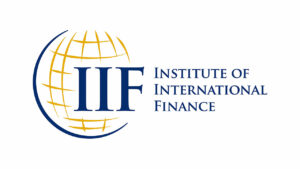
PHL takes top position in debt transparency ranking
THE PHILIPPINES took the top position alongside Indonesia in a ranking of debt transparency compiled by the Institute of International Finance (IIF).
In its 50-country Investor Relations and Debt Transparency Report, the IIF said the Philippines and Indonesia posted scores of 12.5 out of 13, topping the table and exceeding the average transparency score of 9.
The IIF evaluated countries’ adherence to the International Monetary Fund’s Special Data Dissemination Standards.
In terms of investor relations, the Philippines posted a score of 48.8 out of 50, beating its 2023 score of 47.8, when it placed third.
Other leading countries in this year’s ranking were Indonesia (48.7), Turkey (48.3), Brazil (47.5), and Hungary (47.2), the IIF said. The global average was 34.1.
The Philippines and Uruguay received a perfect score of 4 in the ESG (Environmental, Social and Governance) Data and Policy Dissemination Score, which assesses the availability of ESG data. The global average was 2.4.
“Transparency is most important, especially in debt. We release data quarterly among others. We have to show the public where the axes and borrowings go,” Finance Secretary Ralph G. Recto said in a text message.
“Our job in the DoF (Department of Finance) is to stretch every peso. More bang for the buck. Growth should be higher than borrowings, so we can pay for it,” he added.
“There is significant scope for a strong rebound in portfolio debt flows as the normalization of central bank policies in mature markets continues to advance,” the IIF said.
“However, the pace of recovery may be quite uneven; our research suggests that countries with robust investor relations and debt transparency practices are poised to benefit the most from the ongoing rebound in global liquidity conditions,” it added.
The report also highlighted that the Philippines “fully met” 83% of all IR assessment criteria and has remained among the top five countries.
Zy-za Nadine M. Suzara, budget analyst at the Institute for Leadership, Empowerment, and Democracy, said the government should provide real-time information about where the debt is being used, particularly its impact to taxpayers and whether it is funding corruption.
“On one hand, it is a challenge for the Philippine government to provide this level of transparency, but on the other hand, there are also a gap in terms of how civil society will make sense of the information,” she said via Viber message.
“High levels of debt transparency is good public relations but let’s also remember that it isn’t a goal in itself. If anything, it’s supposed to enable civil society to seek greater public accountability as to how the debt was really used.”
Union Bank of the Philippines, Inc. Chief Economist Ruben Carlo O. Asuncion said the government must ensure continued transparency in debt-related matters.
“Foreign investors knowing that they can get reliable information about the country’s real economic situation at any point in time is what makes them confident,” he said via Viber. — Beatriz Marie D. Cruz



